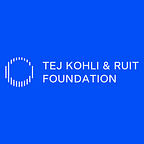How COVID-19 Delayed Progress
In the past four years, the world has experienced a truly exceptional number of related international disasters and disputes. The consequences of these calamities, ranging from COVID-19 to the invasion of Ukraine, could very well impede the UN’s 2030 Sustainable Development Goals from being met.
The direct and indirect fatalities from COVID-19, up to 15 million and still growing, have been catastrophic to the world’s healthcare systems, with exhausted resources, swollen patient volumes, and urgent calls for assistance. With attention to the pandemic, many forget that hunger and extreme poverty have been given space to expand significantly. As people become unemployed and are denied access to medical treatment, it is predicted that the global levels of poverty will escalate alarmingly, rivalling the greatest surge in thirty years since 1990.
From 2015 to 2018, poverty rates dropped from 10.1% to 8.6%, a promising indication that the number of people surviving on $1.90 a day or less was steadily reducing. Unfortunately, the ongoing pandemic has reversed any positive effects the last few years had on poverty, and the population in dire financial straits is likely to continue to rise. It is projected that poverty levels surged in 2019 from 8.3% to 9.2%, the most notable increase since the beginning of the 90s. It is undeniable that the pandemic has propelled millions of people into destitution and deprivation.
It is highly likely that the pandemic has highly exacerbated disparities in poverty rates in women and working youths who already were disproportionately affected by poverty. Due to the pandemic, working hours and pay were cut causing the disparity to increase.
The pandemic has had a tremendous negative impact, particularly on the developing world, where a lot of people are in need of assistance. Due to the shortage of resources, they have been reduced to a dire state. As a blindness organisation on a global scale, we have started to witness the effects of COVID-19 on many communities.
We have seen one patient who was completely disbanded from employment due to working across borders in India. This was the case for many people living in Nepal who previously relied on this work to support their families.
The UN’s Sustainable Development Goal #1 to end poverty in all forms everywhere is ambitious but necessary. Under this goal is several sub-targets:
1.1 By 2030, eradicate extreme poverty for all people everywhere, currently measured as people living on less than $1.25 a day.
1.2 By 2030, reduce at least by half the proportion of men, women and children of all ages living in poverty in all its dimensions according to national definitions.
1.3 Implement nationally appropriate social protection systems and measures for all, including floors, and by 2030 achieve substantial coverage of the poor and the vulnerable.
1.4 By 2030, ensure that all men and women, in particular the poor and the vulnerable, have equal rights to economic resources, as well as access to basic services, ownership and control over land and other forms of property, inheritance, natural resources, appropriate new technology and financial services, including microfinance.
1.5 By 2030, build the resilience of the poor and those in vulnerable situations and reduce their exposure and vulnerability to climate-related extreme events and other economic, social and environmental shocks and disasters.
1.A Ensure significant mobilization of resources from a variety of sources, including through enhanced development cooperation, in order to provide adequate and predictable means for developing countries, in particular least developed countries, to implement programmes and policies to end poverty in all its dimensions.
1. B Create sound policy frameworks at the national, regional and international levels, based on pro-poor and gender-sensitive development strategies, to support accelerated investment in poverty eradication actions.
It has been claimed that the global crises of the past 4 years have severely dented any sort of progress that was made in moving towards the eradication of poverty. However, some progress is still being made. Throughout the pandemic, some social protection systems were put in place which led to many people avoiding the descent into poverty. Whilst it is clear that many were pushed into negative situations, 211 countries announced 1900 social protection measures to support their citizens throughout the pandemic.
It is clear that to recover from the global issues of the past 4 years, we must come together and rebuild the progress that we once made. Delivering global support and working alongside governments and other NGOs will give the suffering communities the opportunity to rebuild and restart their lives. Ensuring the recovery and the success of the UN’s Sustainable Development Goals — particularly the first goal is something that our teams at the Tej Kohli & Ruit Foundation are working towards achieving by curing those suffering needless and curable blindness.
For more information on Tej Kohli as a philanthropist visit tejkohliruit.com and to read more of his views go to his Medium.
To read about Tej Kohli as an investor visit Kohli Ventures.
Find out more about Tej Kohli: Tej Kohli the technologist investing in human triumph, Tej Kohli the philanthropist trying to cure the developing world of cataracts and Tej Kohli the London tycoon with a generous streak.
| Follow: Twitter | Instagram | LinkedIn | Facebook | YouTube |
